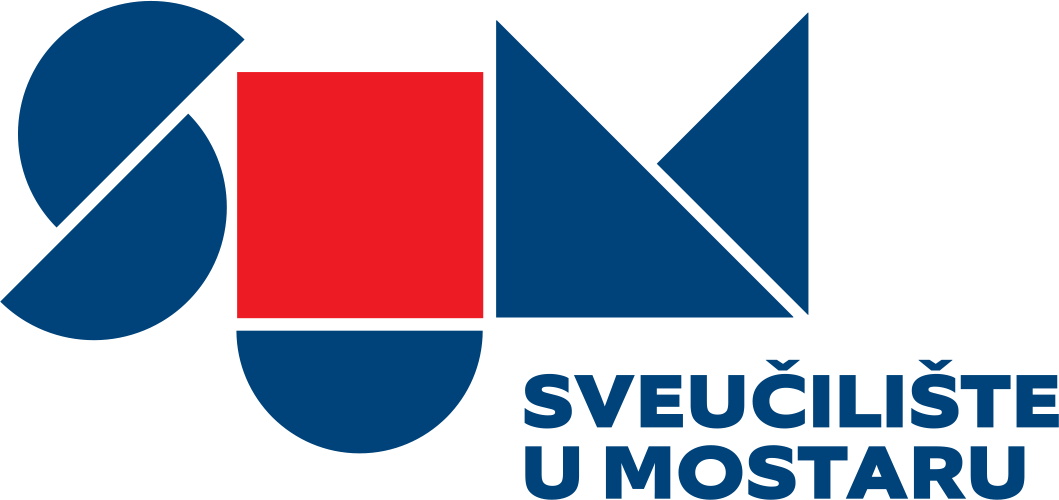The Department of Croatian Language and Literature offers undergraduate and graduate single-major and double-major study programmes. The double-major study programme can be combined with any other double-major study programme at the Faculty of Humanities and Social Sciences. The Department allows both full-time (state-funded or self-financing) and part-time enrolment.
Undergraduate study programme (6 semesters – 180 ECTS)
In the course of undergraduate single-major and double-major studies of Croatian language and literature, students acquire knowledge from the entire field, including the grammar of the Croatian language and all of its levels, the history of the Croatian language and a chronological survey of Croatian literature.
Upon completion of the undergraduate single-major and double-major Croatian Language and Literature study programme, the student will be able to/ know how to:
- differentiate basic grammatical categories;
- apply the grammatical rules of standard Croatian at orthographical, phonological and morphological level;
- use linguistic terms and terms from literary theory;
- perform the morphological analysis of a text;
- evaluate the Croatian linguistic and cultural heritage from earlier periods;
- recognise basic literary genres according to their form and content and list their basic characteristics;
- define fundamental linguistic terms;
- analyse and interpret literary texts from the earlier periods of Croatian literature.
Upon completion of the undergraduate single-major and double-major study programmes, students are awarded the academic title of Bachelor of Croatian Language and Literature,
Bachelors of Croatian Language and Literature may enrol in the Croatian language and literature graduate study programme or a related study programme. They are also qualified to work as expert assistants in the field of teaching, in publishing houses, libraries, media and other related institutions.
Graduate study programme (4 semesters – 120 ECTS)
In addition to the knowledge and skills acquired in the course of undergraduate studies, the graduate study programme in Croatian language and literature enables students to interpret and evaluate literary texts independently, connect theoretical knowledge with the practical requirements of teaching Croatian language and literature in order to organize the process of learning and teaching Croatian language and literature to different age groups and for different types of education.
Upon completion of the graduate single-major and double-major study programme in Croatian Language and Literature, the students will be able to/know how to:
- apply syntactic, formative and lexical rules of the Croatian linguistic standard;
- differentiate stylistic features of specific literary texts;
- analyse and interpret literary works from the modern and contemporary periods of Croatian and world literature;
- describe theoretical postulates of teaching;
- apply the rules of school docimology while assessing students’ knowledge;
- know and differentiate interactive, verbal and audiovisual types of teaching;
- independently teach the Croatian language (prepare, organise, and conduct Croatian language classes in primary and secondary schools);
- connect the operational curriculum with the official curriculum;
- prepare lesson plans for all types of classes;
- connect the acquired knowledge of the Croatian language and literature and the theoretical knowledge of teaching methodology with teaching in primary and secondary schools.
Upon completion of the graduate single-major and double-major study programme, students are awarded the academic title of Master of Croatian Language and Literature.
In addition to the knowledge and skills acquired during undergraduate studies, Masters of Croatian language and literature are eligible to teach independently, edit written and spoken texts, prepare manuscripts for publishing and work as assistants or editors in the field of journalism. They can also enrol in postgraduate studies. Employment opportunities include education (preschool institutions, primary and secondary schools, teaching assistants in institutions of higher education), scientific work, libraries, media, institutes etc.
Upon completion of the five-year teaching-oriented programmes offered by the Faculty of Humanities and Social Sciences, students will acquire the qualifications for teaching in primary and secondary schools, according to the EU standard of a minimum 60 ECTS in the teaching-oriented courses within the total of 300 ECTS. The above-mentioned 60 ECTS standard is acquired through the teaching-oriented programme and general courses (the Teaching Module) in the course of both undergraduate and graduate studies.
Upon completion of the teaching-oriented programmes offered by the Faculty of Humanities and Social Sciences, and by passing general courses, students will be able to:
- apply their knowledge of human development, socio-cultural and individual differences in order to help students achieve their best;
- recognise educational needs of gifted students, students with developmental or learning difficulties, as well as the needs of students who belong to different vulnerable groups;
- create a safe, stimulating and inclusive environment, according to every student’s needs;
- demonstrate their knowledge of regulations, laws and conventions which regulate the protection of children’s rights;
- apply relevant knowledge of methods of efficient teaching of different content, including potential difficulties students may encounter;
- plan the teaching process and learning outcomes in accordance with the students’ developmental level, abilities and needs;
- evaluate their work and plan further development of their professional competencies;
- demonstrate their knowledge of the standards and ethical principles of the teaching profession;
- apply different strategies in order to develop partnership between family, school and community;
- participate in team work in different educational contexts;
- demonstrate their knowledge of the educational system and legal regulations, including the organization and methods of school management;
- create projects and conduct research in order to improve the work of their school;
- independently make decisions about grading and evaluating students, and share responsibilities with other individuals relevant for the students’ development;
- independently make assessments, judgements and decisions in educational contexts.



